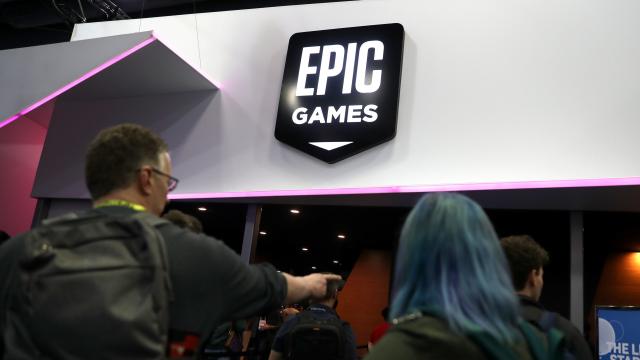The latest episode of the Epic Games vs. Apple saga took place this morning, and it appears we’re still at square one.
Apple wants to keep Fortnite out of its App Store and boot Epic’s Unreal Engine, too. Epic Games wants Fortnite reinstated and Unreal Engine to remain. Apple still thinks Epic’s stunt will hurt its iOS ecosystem, and Epic still thinks removing Unreal Engine will irreparably harm both it and all the game developers who use Unreal Engine. Presiding over the case at the U.S. District Court for the Northern District of California, Judge Yvonne Gonzalez Rogers is working on a written ruling from today’s hearing. It seems likely the status quo will remain until the big court date in July 2021 — but Judge Gonzalez Rogers also recommended that the case be brought before a jury.
“I think personally this case should be tried to a jury,” Gonzalez Rogers said. “These are important cases and they are on frontier of anti-trust law. You might as well find out what people really think and want” — that is, instead of relying on the ruling of a single judge.
Judge Gonzalez Rogers’s recommendation came after both companies spent a good chunk of the hearing arguing over what matters most to their customers. Apple again cited privacy and security as a big reason why its customers choose Apple over other platforms — and the main reason it would not allow Epic to side-load its own store on iOS devices, like it can do on Android’s platform.
Epic’s legal counsel pointed out during the hearing that 63% of the people who play Fortnite use iOS to do so, which represents 71 million people — not an insignificant number. Not all of those 71 million people (or even some of them) would be able to easily switch to another platform just to play Fortnite due to the costs associated with switching devices and operating systems, noted Epic.
Epic also pointed out that it saw a demand for a separate payment process from its customers when it offered a direct payment method via its Fortnite iOS app. According to Epic, within the six hours that its direct payment method was active, about 50% of its users opted for that method instead of Apple Pay. Apple’s response was to point out those users were getting a $US2 ($3) discount if they used that method, so it’s hard to tell if those users switched because they didn’t want to use Apple Pay, or because they wanted the discount.
Of course, the 30% “Apple Tax,” or the share of revenue that Apple takes from paid apps and in-app subscriptions, came up again. Epic was quick to say “Apple doesn’t make Uber use Apple services,” to which Apple had no response. But Epic is on the thinnest ice with regards to this, because it purposefully violated its contract with Apple, a fact that the company freely admits.
What was interesting about that part of today’s hearing was Epic focused less on the 30% commission and instead focused on not being able to side-load apps onto iOS. Both Apple and Judge Gonzalez Rogers still hit hard on Epic’s contract breach, though. The judge at one point questioned Epic why it was so concerned with Apple charging a 30% commission when other companies like Microsoft, Sony, Steam, GOG, and others do the same. In response, Epic said, “We don’t challenge specifically the 30%…we’d like to distribute our apps on the iPhone without going through the App Store.”
If Epic vs. Apple does go before a jury, this wouldn’t be a first for Apple. Judge Gonzalez Rogers presided over a case in 2014 in which the plaintiff claimed Apple maintained a monopoly with its iPods because you could only put music from the iTunes Store or CDs onto an iPod. If you got your songs elsewhere, you couldn’t put them on your device. That case might set a precedent for this current one, should it go to trial; the eight-member federal jury unanimously ruled in Apple’s favour. If that were to happen again, its possible that Epic could end up owing Apple money it lost from those users who opted to buy V-bucks through a direct payment to Epic rather than use Apple Pay.
Also, the status of Unreal Engine on the App Store is still in question. If Apple gets permission from the court today to oust Unreal Engine from its App Store, it’ll likely follow through with it. During a temporary restraining order (TRO) hearing at the end of August 2020, lawyers representing Apple said they were concerned Epic would breach its Unreal Engine contract with it the same way it broke its Fortnite contract. The company wanted to take proactive steps to prevent Epic Games from doing it again.
“Unreal Engine is not consumer-facing,” Epic replied in today’s hearing. “Unreal is used all over the world for all kinds of applications.”
Epic has not violated its separate Unreal Engine contract with Apple.
We will update this article once the written ruling from today’s hearing is released.
